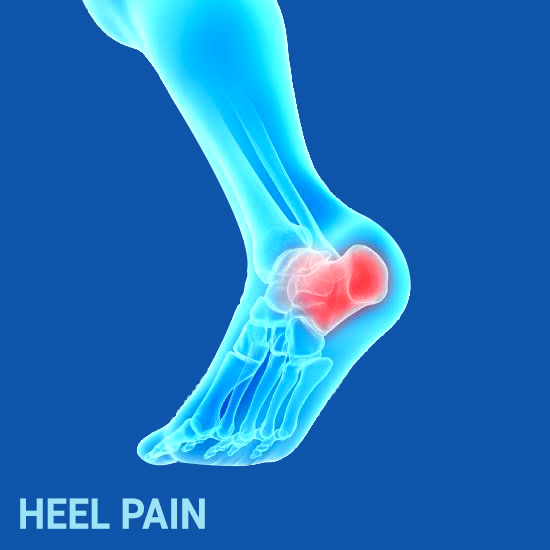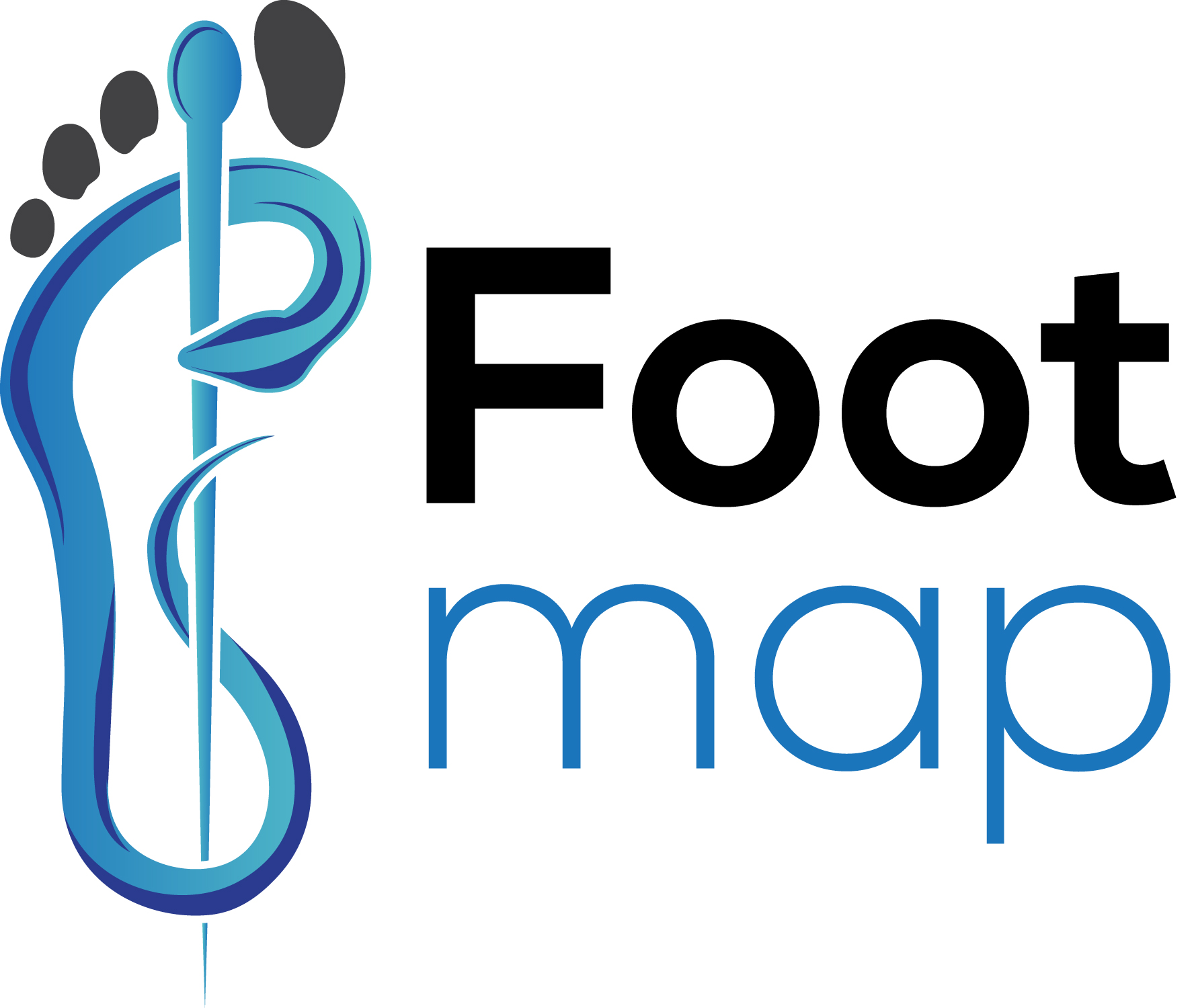Heel Pain
 Heel pain is a result of overuse or injury to your heel (the largest bone in your foot). The pain occurs where the Achilles tendon connects to the heel bone, that is under the heel or just behind it, sometimes the side of the heel. The pain is usually mild, but it can become severe and sometimes disabling. Mild Heel Pain disappears without treatment, but sometimes it can persist and become chronic. The feet can handle a heavy load, but when you put too much stress, it pushes your feet off their limit. Some of the causes are traumatic injuries, infections, metabolic disorders, and exposure to toxins. Diabetes is a common cause.Home care such as rest, ice, proper-fitting footwear and foot supports are often enough to ease heel pain.
Heel pain is a result of overuse or injury to your heel (the largest bone in your foot). The pain occurs where the Achilles tendon connects to the heel bone, that is under the heel or just behind it, sometimes the side of the heel. The pain is usually mild, but it can become severe and sometimes disabling. Mild Heel Pain disappears without treatment, but sometimes it can persist and become chronic. The feet can handle a heavy load, but when you put too much stress, it pushes your feet off their limit. Some of the causes are traumatic injuries, infections, metabolic disorders, and exposure to toxins. Diabetes is a common cause.Home care such as rest, ice, proper-fitting footwear and foot supports are often enough to ease heel pain.
Causes
- plantar fasciitis
- Achilles Tendonitis
- Stress Fracture
- Overly flat feet
- High arched feet
- Wearing ill-fitted footwear
- Work demanding long period standing
- Obesity
- Reactive arthritis
- Achilles tendon rupture
- Bone tumour
- Bursitis (joint inflammation)
- Bunions, corns, and callouses
- Haglund’s deformity
- Heel spur
- Osteomyelitis (a bone infection)
- Paget’s disease of bone
- cuboid syndrome
- Retrocalcaneal bursitis
- Rheumatoid arthritis
- Sarcoidosis
- Congenital foot problem
- Tarsal tunnel syndrome
- Peripheral neuropathy
- Chronic inflammation of the heel pad
Diagnosis
The doctor will physically examine the foot. Obtain your medical history and look at your symptoms to rule out other foot-related or health-related issues. Imaging technique such as X-ray.
Treatment
- Avoiding or limiting the activities that put stress on your heels.
- Placing an ice pack on your heel several times a day helps reduce inflammation.
- Calf muscles stretching exercise help ease pain and assist with recovery.
- Oral anti-inflammatory drugs, such as ibuprofen
- Avoid walking barefoot
- Wear supportive shoes that have excellent arch support
- If you’re an athlete, choose shoes appropriate for your sport, and replace them regularly.
- Support the foot by reducing strain on the heel with the help of tapping and strapping
- Use shoes with custom orthotic devices to help correct the structural abnormalities causing the plantar fasciitis.
- Use a removable walking cast to keep your foot immobile for a few weeks to allow it to rest and heal
- Night Splint can keep your foot stretched while you sleep
- Athletic taping gives better support to the bottom of the foot
- Shoe inserts, heel lifts to relieve pain
When non-surgical approach fails to relive your heel pain, the doctor may recommend surgery.
Prevention
- Wear supportive shoes
- Stretching Exercise
- Using custom orthotic devices
- Maintaining healthy body weight and healthy diet to reduce stress on the heels
- Wear suitable sports shoes for each task
- Stretch your muscles before exercising.
- Pace yourself during physical activity.
- Rest when your muscle ache
